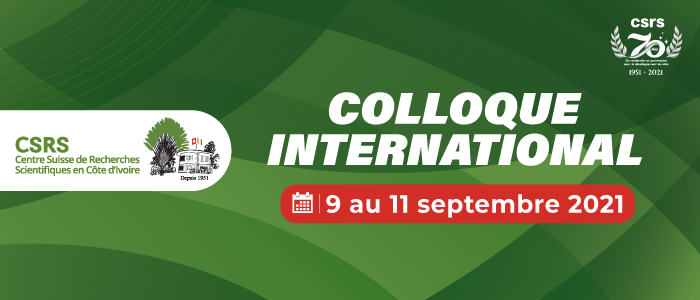
Theme: THE NEED TO RETHINK THE WORLD FOR SUSTAINABILITY: THE ROLE OF TRANSFORMATIONAL RESEARCH IN SUB-SAHARAN AFRICAA
1. Background and Justification
During an important meeting
at the United Nations in 2012, major head of States and Governments,
committed to a new worldwide roadmap, through adoption of 17
Sustainable Development Goals (SDGs) to be achieved by 2030.
From 2015, those 17 SDGs constituted the guiding
principles for the States in their efforts towards sustainable
lifestyles. They cover interconnected areas of human life including
poverty, hunger, health, education, gender equality, water, energy,
employment and sustainable economic growth, industry and innovation,
inequality, sustainable cities and communities, responsible
consumption and production, climate change, water and land, peace and
justice, and partnerships and collaboration.
While the States have committed themselves to
achieve all those objectives by 2030, unexpected events such as the
global pandemic of COVID-19 constitute shocks, challenges and tests
for the whole mankind. Those events are likely to disrupt social codes
and habits, social interactions, economies, environments, etc.
In the global response to the COVID-19 crisis,
the urgency took precedence over long term solutions. Indeed, in
addition to the health emergency, humanity has quickly been confronted
with an economic, social, political and environmental emergency.
Beyond issues related to health emergency, the current crisis exposes
the limits of the different models of thinking and functioning of
various societies.
The shortcomings of the current management of
the COVID-19 crisis show that the world will never be sufficiently
equipped to deal with such crises. Medical progress remains an
imperative to contain or even reduce diseases burden, especially for
major tropical diseases such as malaria, HIV/AIDS, tuberculosis,
non-communicable diseases, emerging and re-emerging diseases, among
others. ...Beyond that, it is imperative to rethink our lifestyles and
development models in a way that they become more resilient and
sustainable. The guarantee of common goods; the assurance of a
transition towards a more inclusive model, resilient to climate and
ecological risks, sustainable and protective of citizens and
biodiversity; as well as democratic systems that fully combine the
participation of all and the respect of fundamental rights, are
essential to avoid new crises. Those priorities are likely to guide
post-crisis reconstruction.
There is an urgent need to think and act
sustainably or else, to be obliged to continuously bandage.
Transformational research must remain a priority, or rather become the
top priority for sub-Saharan Africa.
This part of the continent is the area of
multiple transitions, each with its own set of uncertainties, the
combination of which makes any foresight initiative difficult.
-
Even with a slow pace, a
process of demographic transition is currently underway, with the
corollary that education needs are becoming significantly more
important as t birth rates remain high even though they are decreasing
in a large number of countries;
- An economic transition, as the economic
landscape is dominated by so-called rentier systems (based on the
massive exploitation of natural resources) while those rentier
economies are neither competitive nor sustainable;
- An energy and ecological transition, as the
scarcity or depletion of natural resources under the combined effects
of overexploitation and climate change increasingly show the limits of
current development patterns;
- A social transition characterised by the
dynamics of the traditional social structures around contradictions
and clashes between various classes, groups or casts that are
characteristic of the capitalist order; Those contradictions shape the
economic and social sphere but also the cultural sphere in which
genuine African values and norms are deployed and confronted to other
systems borrowed from the Asian, European, Islamic-Arabic, Christian
and Western worlds;
- A transition in governance as African states
aspire to greater global leadership.
Sub-Saharan Africa is
therefore at a crossroads in a context where the capacity for
foresight informed by good science is more than ever crucial to the
co-construction of a more prosperous and resilient society.
In addition to the conference, the 11th
CSRS-Fondation Eremitage Prize for research in partnership will be
awarded. Other side events could be organized during the same period
at the same venue: Palm Club Hotel in Abidjan, Cote d’Ivoire.
Information on these events is available on the conference website (www.csrs.ch/colloqueRTAS2021.php)
Official Languages
The official languages of the
conference are French and English. Arrangements will be made for
simultaneous English-French translation during all plenary sessions
and most parallel sessions.
.




